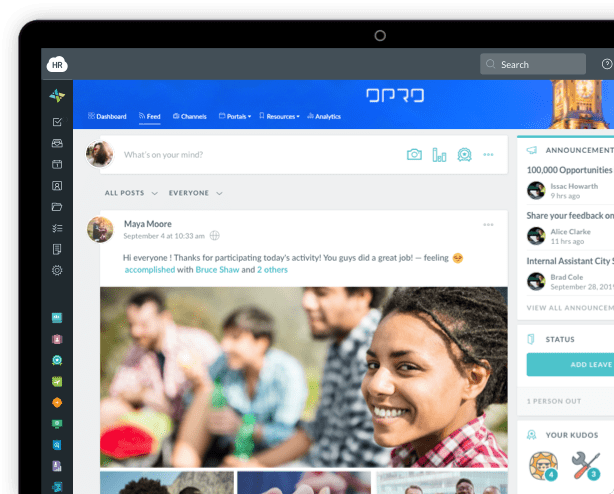The Human Resource Information System (HRIS) you choose can determine whether or not your workforce can scale alongside your company and the demands of your industry. This is even more true today given the massive impact of COVID-19 on not just the economy but workplace culture itself.
The global health pandemic practically normalized online and work-from-home culture overnight. And as more and more companies embrace digital transformation and telecommuting, your HRIS will play an even bigger role in keeping employees engaged, satisfied, and continuously improving. If you’re in the process of choosing an HRIS, what are the most important things you need to consider?
User-Friendliness
First and foremost, an HRIS should have an interface that’s easy to use for candidates, employees, managers, and executives of different levels. There should be no major issues in terms of the system’s usability across your company or organization. This is particularly important today as many are still adjusting to doing the majority of work-related tasks online. The user-friendliness of your chosen HRIS will determine how quickly your workers can adapt to using it, the type of training they need in order to use it efficiently, and its overall value to your company’s future.

Functionality and Scalability
An HRIS must also have a wide range of functions to meet your company’s scaling needs. The more HR-related functions an HRIS offers, the more useful it can be to your long-term goals. This is why we offer different HRIS plans that come with their own set of features and functions. From employee engagement mechanisms and remuneration integration to onboarding and performance review mechanisms, our plans are flexible and scalable with any number of business or organization models. Furthermore, An HRIS should also come with security features that protect the account names, passwords, and all other pertinent data of its users. Apart from network security itself, this also means having different levels of access for viewing data depending on people’s positions within the company. These factors will also determine whether or not your HRIS can seamlessly integrate with your organization’s current infrastructure.

Workforce Education and Development
Your chosen HRIS should have the capacity to aid in the training, education, and development of your workforce. This is particularly crucial if you’re looking to bridge the gap between work and learning within your organization. In an examination of how emerging technologies are shaping the future of work, the Massachusetts Institute of Technology’s (MIT) Task Force on the Work of the Future initiative highlights how online software and information systems will be crucial to bridging these gaps. According to the task force, online employee training must incorporate lessons and insights from learning science in order for work education and development programs to scale with growing industry needs.
MIT is not alone in realizing the value of online technologies in the long-term development of the modern workforce. Many universities are conducting HR training through the online courses they offer. A long-time exponent of web-based education, Maryville University’s online human resources degree graduates are trained not only in HR employment law and talent management but also in the emerging technologies pertinent to the field. Whether for facilitating talent recruitment or enhancing strategic talent development goals, online training is playing a crucial role in getting today’s HR workers ready for a more digitally originated workforce. These new workers will be able to use an HRIS to effectively scale and expand a company.

In conclusion, your HRIS should be user-friendly, highly functional, and scalable, and able to aid in the long-term training and development of your workforce. If it performs well in all of these key aspects, then it might just be what you need to future-proof your business.
Author: JBrackett

Keep Reading
Upskilling and Reskilling: Preparing the Workforce for a Tariff-Impacted Economy
Recent shifts in global trade policies have led to a new wave of tariffs impacting
Retention Reset: How to Keep Your Best Talent in 2025
More employees are walking away from their jobs in 2025 not just for better pay, but for


